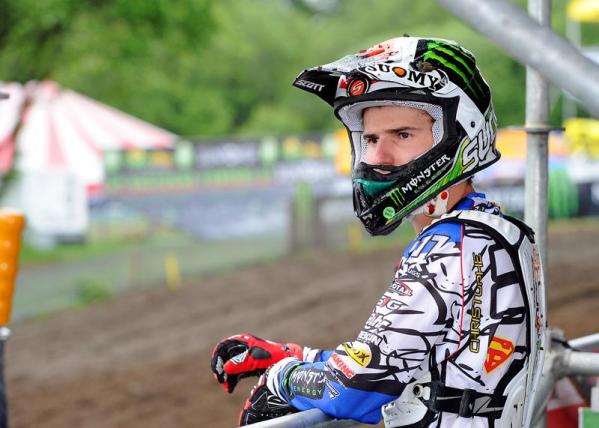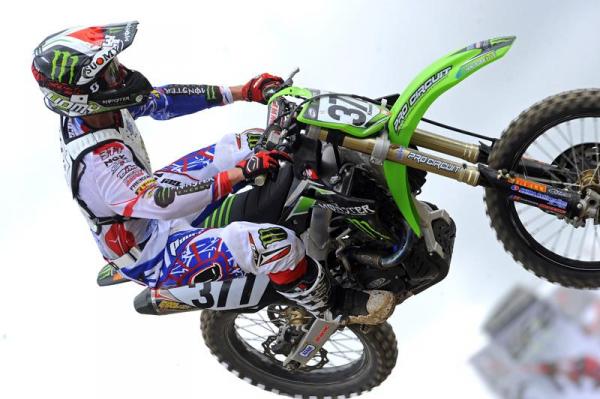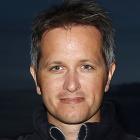When I was a kid my style wasn’t like it is now. I was just happy to be on the bike and I would ride until the gas ran out and I’d start crying and my dad would put more in the tank! It seems funny now. Like most things I began riding because my Dad was into it. My brother had a bike and was riding and then for Christmas – when I was three - one arrived for me. When I was a kid I just have memories of a soccer ball and a bike. Coming from the south of France football (or soccer) was pretty big. One thing I didn’t like about that sport though was the whole ‘team’ side of it. If some guys didn’t want to move their ass when they were playing then you were not going to win and that made me mad! Marseille was my team but my interest in football lessened the more I began to ride and started racing.
Until I was fourteen my Dad helped and guided me but I reached a point where I would pick up a lot myself from watching the other guys. Going to a race – even if I was hurt and not riding – then I would try to analyse everything I could. Whether it be some of the old Pros or Cairoli or Dungey now I would watch their good stuff and see their bad stuff and try to take things from them. When you are growing up then you don’t really need to work out a lot. It is about fun and nothing more. You are thirteen or fourteen and just a skinny thing and you feel like you never get tired!

Pourcel is right in the thick of the MX1 title battle.
Wheeler photo
Motocross really changed for me when I was fifteen. It was then that I moved to Belgium to live for three years. I had the sensation that it rained every day and I had to train in this bad weather! I had to learn to test suspension and to ride in the sand. I had to practice in the mud and this was not fun either! It was the first time when I was aware that the sport had become a job and something I had to commit to. I knew I had to be there to try and win that world championship and when we made it happen I was really happy. If you want to be at the top then you need to work a lot but then you also need talent. I think Antonio [Cairoli] has it. To be really good is not easy.
When you do the GPs then there is the time to get serious and race but there is also time for fun. You just need to work out the best moments for both. I think my heart went toward the U.S. when I was sixteen. I knew I wanted to go one day. I was already in the World Championship and thinking of the AMA but I wanted one more year In Europe to try and get that title so I could go to U.S. with that achievement, and also because I really like motocross. The desire to go there made me even more determined to do well in 2006 and it worked out. I think it would have been a mistake to leave before winning that 2006 World Championship.
I was fifth in my first GP season in 2005 and there were so many good guys racing then: Maschio, Cairoli, Rattray, Philippaerts, all those together, young guys and old guys. That’s why I don’t really understand this 23-year age limit on MX2 now. There might be some people who cannot get a top ten on a 450 but there would be another challenge if they could be in MX2.
I have been racing and working with my brother – Sebastien – a lot of years now. It was not easy for him to be super-good on a 65 or an 85 and all the mistakes he and my Dad were making were not repeated with me. It was like I got the filter and all the positive effects of their work. It is partly because of Seb that I am here. When we were growing up our relationship was always good, even through the races. There was a time when we were on the same team in the middle of the last decade when it became a bit tough. Maybe it was not easy for him to accept that his younger brother was pushing for a championship but I think it was a good experience for him and helped with character-building.
There was plenty of talk about how I was the ‘next’ Jean Michel Bayle when I started to get some success. I had never met or spoken with him and I was too young to have followed his career. There was a big comparison for a while and that was good for me but I cannot say I modelled myself on JMB because I was detached from what he did. I knew what he achieved and also people like Pichon and it was cool to follow in those footsteps a little.
People sometimes ask me how I can do what I do. I think it is just easy for me to ride a motorcycle fast. I am born that way.
In 2006 my style was completely different to how it is now and the change came about because of my accident in 2007. It was a lot of work and we pushed in a direction where I was standing up a lot more on the bike. I didn’t have to go fast right away after my crash and the problems with my back. I had time to think about what I was doing on the bike and ride it fast and in a way where I could minimise the crashes. It turned out to be even better than before.
When it came to choosing and taking lines there is not much explain. Maybe it comes down to talent and just being able to handle the bike so I can put it where I want. I remember sometimes back in 2006 when I wouldn’t really look at the track and then do a fast lap with some lines. I would then use totally different ones in a race and still be just as quick. Even now I don’t need to see a track and I don’t need anyone to tell me which lines are the best. I can just feel which ones work on the bike and what makes me faster. It is all about feeling. There are some guys who just stay inside, some who stay outside and some - like me - who go everywhere each lap to try and see what is best.

Veteran GP watchers say a young Christophe Pourcel was quite aggressive on the bike. Today, he's a much more calculated racer.
Wheeler photo
When I’m racing I’m thinking about who is in front and who is behind, how they ride and what they can do, when they can go fast and when they might lose time. I’m looking to switch my lines and usually I am way faster at the end of a moto compared to the beginning because I am analysing the track and working the bike, the tyres and doing these calculations to get each lap better than the last. You need to have a vision of the track and how it is changing and I think I am lucky to have the skill to do this.
To then be at the top involves a lot of work and often people don’t realise how much effort and hours go into that. I won my first Supercross race back from the injury (in 2009) and it took people by surprise, but not many knew how much work had gone into it. I had lost forty pounds and had suffered some paralysis for nearly a year. When I got back on the bike I was so fit and developed a new way to do it that it was all super-easy…for one lap! I was tired but that was soon simple to fix that and I learned to be fast again without mistakes and without pushing myself and it is still like that now. I had been so down through the bad times that my approach was so determined for that first SX season. I thought ‘fifteen laps is nothing for me’. I tried my best, gave all I had and was careful and precise on the bike; something in itself that is not easy to do. That was also why I chose to ride for the Pro Circuit team because for the 250 they were one of the best.




